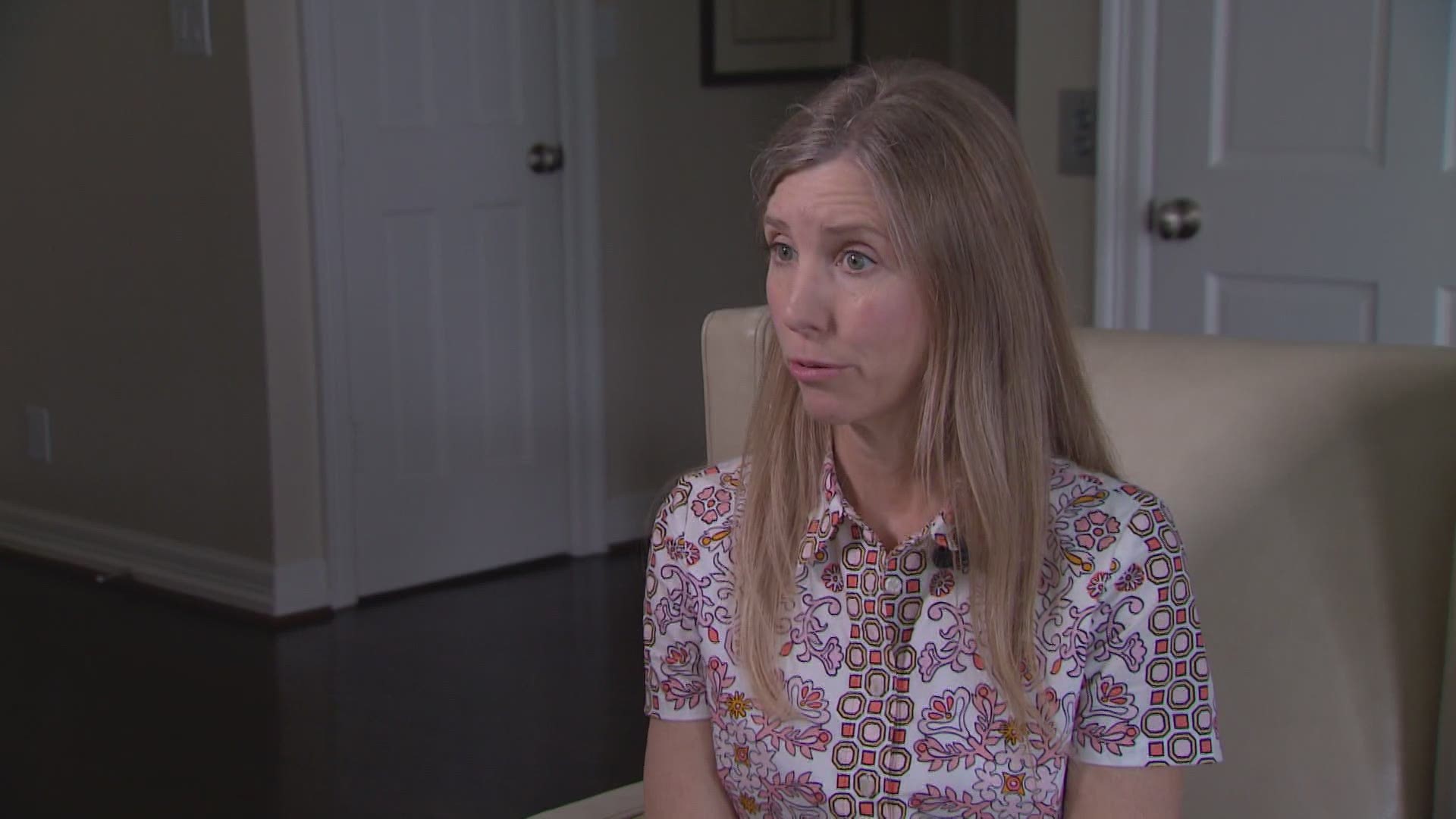DALLAS — Christina Murzin said just 15 minutes before her husband Chris was killed, they texted.
It was Feb. 11 and the roads were getting icy, so they talked about the weather.
"He knew the roads were icy or could turn icy, so I know he was driving cautiously,” said Murzin.
But something happened between 12:45 p.m. and 1 p.m. that day. Police said the driver of a GMC SUV shot Chris. It happened on Interstate 20 near Polk.
Murzin said she still can't believe Chris died in a road rage incident.
"It's just scary driving on the highway. If my husband can be a victim anyone can be a victim," she said.
Across the country, police departments are seeing an increase in this type of violence. Just this week, a motorcyclist was shot in Fort Worth. Police said he pulled a gun on a family in an SUV and was shot by the other driver.
WFAA asked Leigh Richardson, a counselor and the clinical director of the Brain Performance Center in Dallas, why any little thing is setting people off.
"You know it doesn't matter whether you're 3,000 feet in the air or whether you're on the road, people are angry. We've been cooped up for so long and we've been operating remotely, and I think we've forgotten how to interact with one another,” said Richardson.
Richardson said it's been a long 15 months filled with everything from COVID to political and civil unrest, she said people need to calm down.
“We've got to reset and that's something we're going to have to do individually,” said Richardson.
Police said road rage is hard to prevent and often victims may not even know what they did wrong.
"Sometimes, it just seems victims are at the wrong place at the wrong time,” said Murzin.
In Chris Murzin's case, his killer is still out there on the roads. His wife worries about someone else who might cross that person’s path if they aren’t caught.

